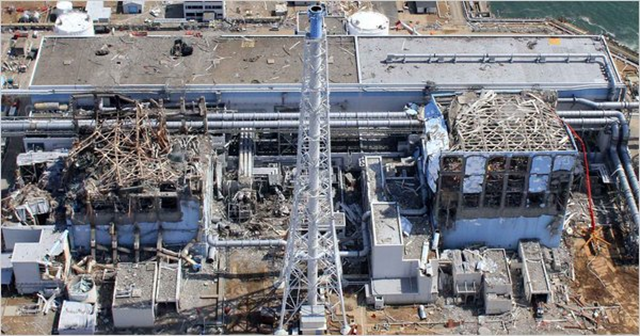In Japan nuclear crisis, crippling mistrust – ‘We found ourselves in a downward spiral’
By NORIMITSU ONISHI and MARTIN FACKLER
12 June 2011 TOKYO — On the evening of March 12, the Fukushima Daiichi nuclear plant’s oldest reactor had suffered a hydrogen explosion and risked a complete meltdown. Prime Minister Naoto Kan asked aides to weigh the risks of injecting seawater into the reactor to cool it down. At this crucial moment, it became clear that a prime minister who had built his career on suspicion of the collusive ties between Japan’s industry and bureaucracy was acting nearly in the dark. He had received a confusing risk analysis from the chief nuclear regulator, a fervently pro-nuclear academic whom aides said Mr. Kan did not trust. He was also wary of the company that operated the plant, given its history of trying to cover up troubles. Mr. Kan did not know that the plant manager had already begun using seawater. Based on a guess of the mood at the prime minister’s office, the company ordered the plant manager to stop. But the manager did something unthinkable in corporate Japan: he disobeyed the order and secretly continued using seawater, a decision that experts say almost certainly prevented a more serious meltdown and has made him an unlikely hero. The convoluted drama has exposed the underlying rifts behind Japan’s handling of the worst nuclear disaster since Chernobyl, which eventually resulted in explosions at four of the plant’s six reactors. Mutually suspicious relations between the prime minister’s aides, government bureaucrats and company officials obstructed smooth decision-making. At the drama’s heart was an outsider prime minister who saw the need for quick action but whose well-founded mistrust of a system of alliances between powerful plant operators, compliant bureaucrats and sympathetic politicians deprived him of resources he could have used to make better-informed decisions. … The early disarray alarmed the United States government enough that it increasingly urged the Japanese to take more decisive action, and to be more forthcoming in sharing information. Making matters worse was Mr. Kan’s initial reluctance to accept the help of the United States, which offered pump trucks, unmanned drones and the advice of American nuclear crisis experts. “We found ourselves in a downward spiral, which hurt relations with the United States,” said Manabu Terada, a lawmaker who served as an aide to Mr. Kan at that time. “We lost credibility with America, and Tepco lost credibility with us.” …
